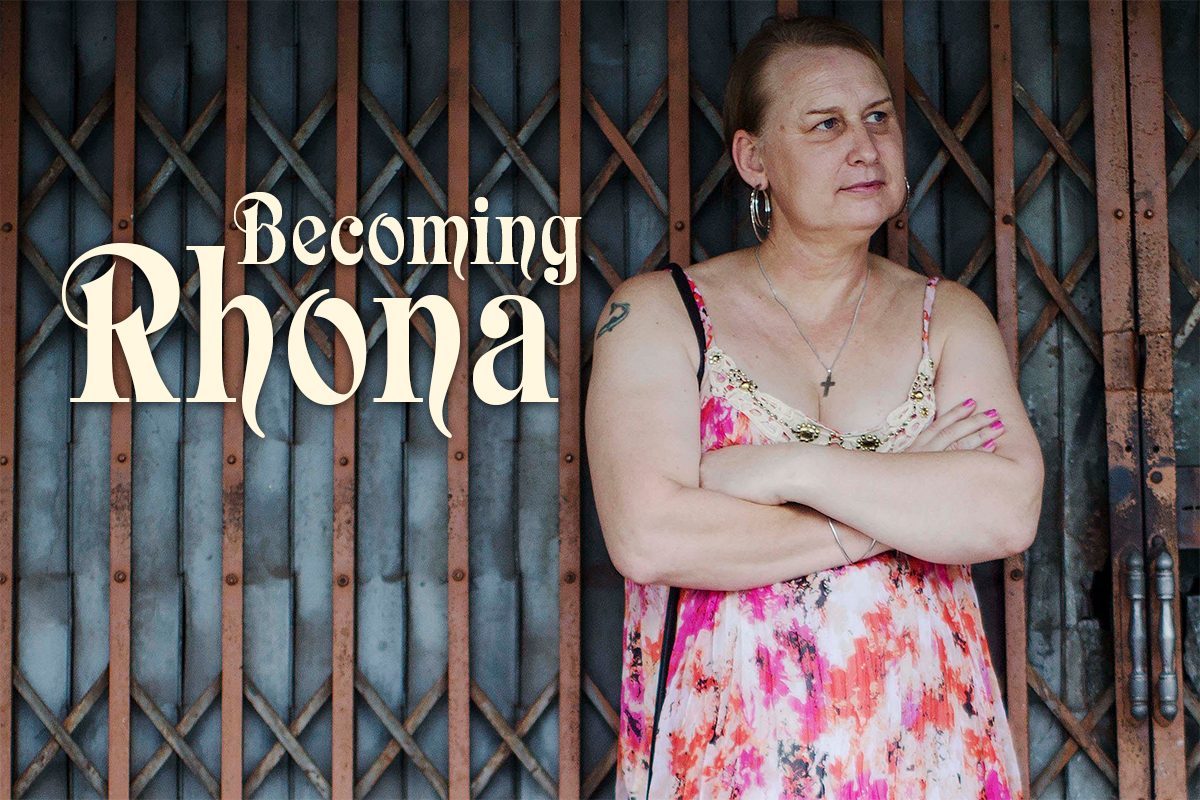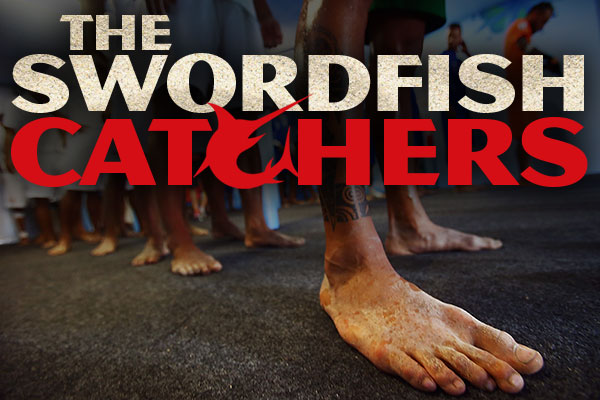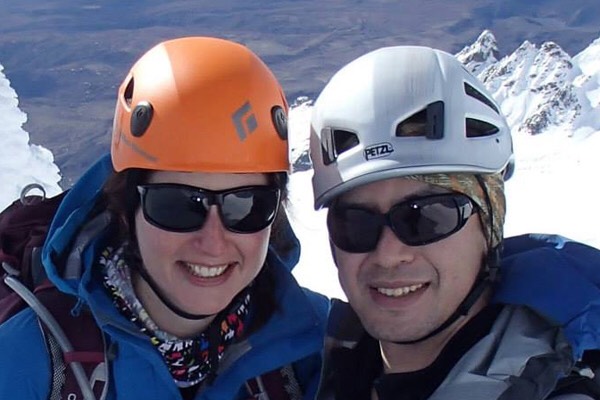
Until this year, Kate Weatherly was an average men's downhill mountain bike competitor. Now she's dominating the elite women's field. Some of her rivals say that's unfair.
Meanwhile, Kiwi weightlifter Laurel Hubbard is about to become the first transgender athlete to compete at the Commonwealth Games.
As sporting bodies worldwide grapple with how to accommodate transgender athletes, TONY WALL asks, how do you support human rights and diversity while ensuring a level playing field?
Kate Weatherly wooshes down a trail at Riverhead Forest west of Auckland, hitting jumps aggressively and controlling her Devinci Wilson mountain bike like it's an extension of her body.
Fresh from winning the elite women's division at the national championships near Wanaka in February, the 20-year-old is back into a busy routine of university study, training and part-time work at a Kumeu bike shop.
Weatherly's sudden arrival on the women's downhill scene in January came as a surprise to some in mountain biking - until the end of last year she'd been known as Anton and raced men.
She'd quietly let a few of the other women know she was making the switch and they seemed supportive. But when she won an event in Rotorua by more than 30 seconds, it set off a firestorm of online discussion and calls for her to be excluded.
She had an unfair advantage because she developed as a male, people said on bike forums. She could "ruin" the careers of other riders and discourage women from taking up the sport, some complained.
Weatherly had previously competed in the men's open division, a grade down from elite, and prior to that the novice men's and under 19 sections.
She hadn't exactly set the world on fire - usually finishing mid-pack. (Downhill riders race the clock, rather than each other).
No-one knew that she wasn't just competing against other riders, but her own body - the hormone blockers she'd been taking since 17 had reduced her testosterone levels to below those of most women.
"I was losing strength and losing speed on tracks even though I was training and riding really hard," she says. "It was demoralising - you're trying to push yourself as far as you can but you're going slower and slower."
But she didn't want to come out as transgender, fearing hateful comments in a male-dominated sport.
"So I thought, 'I'll just keep racing in the men's field at a disadvantage'.”
Her times began improving again - although she had to train harder than ever. She figured she'd look into switching to the women's category for the 2018/19 season, but her plans were up-ended at the very first race of this season, in Rotorua last September.
"Someone found out and went around telling people and kind of outed me, which was quite traumatic.”
However, she was pleasantly surprised by the support she received.
"I thought, 'oh well, everybody knows, I might as well' [switch]."
She got in touch with Mountain Bike NZ and Cycling NZ, which has a transgender policy requiring that transgender people be treated "as belonging to the sex in which they present...unless this might give [them] an unfair advantage".
Like many sporting federations around the world, Cycling NZ has adopted guidelines issued by the International Olympic Committee in 2015 , requiring transgender female athletes to prove their testosterone level in serum has been below 10 nmol/L (nanomoles per litre) for at least 12 months prior to first competition.
The average testosterone level for young men is 24.2 nmol/L and for women around 0.6 nmol/L.
Weatherly was able to provide blood tests showing her levels were in the 0.1-0.9 range, a result of having had injections of the drug Lucrin - used as a treatment for prostate cancer and essentially a form of chemical castration - when she started transitioning at 17.




A daily regimen of cyproterone acetate, an anti-androgen commonly used by transgender women, keeps her testosterone low.
She got clearance to compete in the elite women's field just a few days before the first national series event for 2018 - in Auckland on January 9. She finished first - in a field of one.
A couple of weeks later at an event in Rotorua she was up against two other riders including Shania Rawson of Tauranga, a former junior world number two with dreams of making it big on the world stage. Kate beat her by more than 30 seconds, which is huge in downhill.
It was quite an accomplishment for someone who was a non-sporty kid.
"She was a sickly, undergrown child until she was intermediate age," says her mum, Liz Weatherly. "She had a chronic lung disease - bronchiectasis - she spent a lot of her early life in hospital.
"It's actually a miracle that she's an athlete at all."
Her older brother, Jonny, was a top trampolinist and her father, Paul, a multi-sport athlete, but Kate - then Anton - concentrated on school work at Long Bay College.
"I found it hard to do sport because I'd get short of breath very quickly."
Because of her ill health she didn't start puberty until about 16 or 17, she says. She'd always felt something wasn't right with her body and puberty was particularly stressful.
She saw psychologists, was diagnosed with gender dysphoria and began taking the hormone blockers - Anton became Kate.
"I ended up choosing a name which was what my parents would have called me if I was born a girl."
In 2013, around the same time she was discovering her true identity, she found mountain biking.
"I started on a little hard tail in Taupo, riding some basic jumps. I had a friend who mountain biked out at Woodhill [West Auckland] and I started going there.
"I really enjoyed it, I saved up all my pennies and got a downhill bike for the 2014 season and started racing."
Liz Weatherly: "Once she had a taste of downhill biking...it was a full-on love story."
One of the reasons Weatherly was delaying making the switch to the women's category was that the estrogen she had started taking in April, 2016 had yet to give her the results she wanted.
I have a lot of issues with the fact I don't look as feminine as I want to - I'm still not passing 100% as female in public.
"I wanted to give the estrogen enough time to make me look as feminine as possible...I guess the more masculine I look the more stressful it is for people."



When she made the change before she was ready, the online reaction hurt.
"One racer messaged me and said 'you're ruining the sport by competing as a man in a women's field, you're going to make it impossible for women to get past you'."
She joined discussions on bike forums, explaining that she met all the criteria set by Cycling NZ and the IOC.
She told her critics how lower testosterone causes muscular atrophy, bone density and muscle fibre changes, "which shift the athlete's physical abilities from that of a man to that of a woman".
She hadn’t had the advantage of developing as a male because she took hormone blockers when puberty hit, she pointed out.
She wasn't winning every race - she came second to Rawson at an event in Christchurch - and if she was thrashing everyone all the time, she'd quit, she wrote.
She said the reason she won the Rotorua event so easily was that Rawson was recovering from glandular fever.
Some remained unconvinced.
"Sorry Kate, I feel for you in this situation, but I don't think it's fair on the biological girls," someone posted. "Maybe a new gender neutral class should be created?"
That's a common suggestion, but doesn't appeal to Weatherly.
"My thing is, I'm not gender neutral, I'm a girl. The whole idea of a third category invalidates my sense of identity."
When Weatherly won the national champs, beating Rawson by 13 seconds and the third placegetter by 47 seconds, it threw gasoline on the fire.


Rawson, 19, went public with her frustrations, saying the lack of a stand-down period between Weatherly's change of categories was confusing and unfair and was one reason only five women turned up to race.
She posted on Facebook that cycling had always been a gender-specific sport, "not a competition among individuals around hormone levels or physiological advantages".
She said she'd worked hard and committed her life to the sport "but never did I imagine I would be faced with this", signing off #brokenbutnotdown.
Rawson has stepped back from discussing the issue; her father Ash, says she's received flak for speaking out.
(Others were reluctant to be interviewed. One expert said: "It's a pretty sensitive issue, you can end up with hate mail.")

Ash Rawson, BMX development coach.
Ash Rawson, a nine-time national BMX champion and current development coach, is scathing of the Cycling NZ policy and the way the organisation has handled Weatherly's case.
"There's a massive lack of communication with the athletes and a lack of sympathy for the ladies concerned - this is doing nothing for women's downhill," Rawson says.
When he got in touch with Cycling NZ to question its decision, they said Shania should focus on her own performance. "We were pretty much told to just deal with it.
I have nothing against transgenders, that goes without saying, but fairness in sport is what we're all about.
"[Kate] has developed as a male as far as bone structure, bone density, muscle mass, lung capacity - it's why we have gender sports."
Cycling NZ took Shania overseas as a junior and she fears that if there is only funding for one person, she will miss out on selection for world events, her father says.
"Sponsors are also a concern. They're like, 'um, we thought you were going to take this out, and now you're 20 seconds off'."
He, too, wants to see a separate category for transgender riders, so they can be included in the sport without causing friction.
Andrew Matheson, CEO of Cycling New Zealand, wouldn't be interviewed.
He says in a statement the organisation's job is to ensure that where possible trans athletes are not excluded, "but at the same time our overriding sporting objective remains to guarantee fair competition".
He won't discuss Weatherly for privacy reasons, but confirms she meets the necessary criteria and will be eligible for international competition if selected.
(Unlike cross country mountain biking, downhill is not an Olympic sport.)
Matheson says it's wrong to suggest there is a mandatory stand-down period for athletes switching gender categories.
The policy requires transgender female athletes to be below the set testosterone levels for at least 12 months and any longer period is assessed on a case-by-case basis.
He says Cycling NZ is "acutely aware of...the confidential nature of this matter" and believes the way it communicated with competitors - including speaking to all elite women riders before the national champs - was respectful of the individuals concerned.
But Liz Weatherly thinks the organisation could have done better.
If it had clearly communicated what was going on right from the start "it might have meant Kate wasn't subjected to this massively critical social media storm," she says.
Gil Peters, president of MTBNZ, says the sport's administrators have to be careful what they say because any opinion could spark further debate and breach the fundamental rights of all athletes.
We've got some pretty hefty responsibilities with all of this.
Kereyn Smith, chief executive of the New Zealand Olympic Committee, is another who chooses her words carefully.
"It's very complex and hugely challenging, for society generally, not just for sport."
There is always a debate around balancing human rights and sporting fairness, she says.
"Laurel Hubbard and other athletes...have had to tick a lot of boxes...they are clearly eligible and they've clearly performed and therefore we work with them and their sport to help them achieve their potential."
So do transgender athletes have an unfair advantage?
Some physiologists think so.
Steve Stannard, professor of exercise physiology at Massey University who is also a competitive cyclist, says there are clear advantages for transgender female athletes in strength-based sports such as weightlifting.
"If you've competed as a male through puberty, you've had this stimulus on your body that has caused it to adapt, which is going to give you an advantage later on and that's not a level playing field."
At the other end of the spectrum in sports such as shooting or car racing, gender is not so important, he says.
He suspects downhill mountain biking sits somewhere in the middle.
"Weight makes you go fast downhill - if you're bigger, you go faster."
Stannard believes the IOC needs to get its policy right.
"If you've got one set of rules, they don't fit all sports."
There's a paucity of research on the subject but a 2016 US study of eight transgender middle distance runners, comparing their times before and after transition, found they had no advantage in the women's field.
Largely as a result of their vastly reduced testosterone levels, transgender women lose strength, speed, and virtually every other component of athletic ability, the research noted.

Steve Stannard

Fallon Fox: Fox, an MMA fighter, came out as a fully transitioned transgender female in 2013. Opponents saying she had an unfair advantage as she was bigger and stronger, but the sport backed her.

Bobbi Lancaster: After having a sex change operation in 2010 at age 59, Lancaster tried to join the LPGA ladies golf tour in 2013. She met the sport’s transgender requirements, but failed to qualify.

Chris Mosier: Born female, Mosier started competing in triathlons as a woman but came out as a transgender male in 2010 and in 2015 earned a spot on the US sprint duathlon men’s team for the world champs.

Renee Richards: Richards underwent sex reassignment surgery in 1975 and was denied entry into the 1976 US Open. She disputed the policy and in 1977 the New York Supreme Court ruled in her favour.

Jaiyah Saelua: Saelua, born Johnny, grew up as a fa’afafine and in 2011 became the world’s first international transgender footballer when she represented the American Samoan men’s team in World Cup qualifiers.

Caster Semenya: An Olympic gold medallist in the 800m, there has been intense scrutiny of the South African’s sex ever since she won the world champs in 2009. It’s been speculated that she is intersex, having both male and female characteristics.
A 2016 UK-based study, which reviewed 31 national and international transgender sporting policies, found most were unfairly discriminating against transgender people when there was no scientific evidence that they had any athletic advantage.
Dr Beth Jones, of the school of sports exercise and health sciences at Loughborough University in England, took part in the study.
She says recent research has shown that the importance of testosterone on athletic achievement has been overrated.
It can even be argued that transgender athletes are at a disadvantage, she says.
"In terms of psychological wellbeing and the distress they have to go through, the barriers they face - changing rooms, discrimination, a lot of them have poor mental health - you could argue that puts them at a disadvantage."
Jones says if a sport can prove that a transgender athlete has an advantage, then it would be more inclusive to have a size or skill category rather than separating transgender competitors.
Until more research is done "I think sport should be open to everyone regardless of their gender identity or hormone levels or what genitals they may or may not have."
Canadian cyclist Kristen Worley took the sport's governing bodies and the IOC to court in Ontario claiming their policies surrounding XY female athletes were a violation of human rights.
She'd been subjected to invasive gender verification testing when applying for an exemption to take the testosterone she needs to stay healthy, her sex change surgery in 2001 leaving her unable to produce hormones.
The cycling bodies agreed last year to revise their policies and to advocate for standards and guidelines for transgender athletes based on objective scientific research.
Worley says it should not be referred to as a transgender issue, rather one of chromosomes.
An athlete who has had sex change surgery and is no longer producing hormones, essentially having to be "doped" with testosterone to stop their body shutting down, is completely different to a still-transitioning athlete taking hormone blockers, she says.
Worley says the IOC's move to drop its requirement for XY female athletes to have had sex change surgery, instead recommending their testosterone be below a certain level, was not based on any scientific evidence.
"It was a response to my case. They were trying to make it look like they were changing their ways to reduce their liability in court."
Worley says the IOC doesn't understand the potential impact on athletes' health of "crushing" their endocrine system, which sends hormones to different parts of the body, because it hasn't done the research.
"You're asking a young person to do this to their body to kick a ball, ride a bike or run around a track. No athlete should ever have to defend their identity, nor change their bodies to play a game."
She fears that Weatherly will face health troubles in the future.
"She's in a window right now for the next two to three years where she'll be excelling...but she'll atrophy and not be able to compete at the level she is.
"I can tell you from my experience, she's on a downward curve."
Liz Weatherly has reached out to Worley for advice, frustrated at a lack of information about the health implications of the IOC policy and a lack of knowledge by medical practitioners.
Low testosterone can lead to depression and other problems, Liz says.
"We have these chemicals in our bodies for a reason...I do think it's really important that whatever recommendations an athlete is being asked to comply with, that there's really solid science behind that and it's not an arbitrary figure that somebody's pulled out of the air."
Kate says she will probably have to get a dispensation to have a small amount of supplemented testosterone at some point but isn't too worried at the moment.
"It was never brought up by any of my doctors so it's never been a point of concern really."
She says dealing with her dysphoria and getting her appearance to a point where she passes in public as female is far more important to her than bike racing.
"I mean, I love racing and I want to be the best, but feeling happy in my body is more important to a long and happy life."
She understands the concerns of her fellow competitors, but asks that they take the time to read up on the subject and be considerate - one online post can unleash a flood of transphobic comments.
"I'm a person too."
Michelle Dumaresq, a professional downhill mountain biker who sparked protests from other riders in Canada in the early 2000s when it was revealed she had transitioned from a man, says Weatherly should follow her dreams to turn professional.
"But be prepared to fight for your place in the world because true acceptance of trans athletes is still a long way off, sadly. Just keep smiling, it's harder for people to knock you down when you’re happy."
Weatherly hopes she can lift standards in women's downhill.
"I'm quite a confident rider so I hit a lot of jumps which some of the other girls don't.
"It isn't just whether or not you have testosterone, it's a confidence thing.
"So if I'm hitting the jumps the other girls are going to have to as well, which is going to make the sport cooler.
"It's not about what's in your pants."
words: tony wall
visuals: chris skelton
interactive graphics
and layout: john harford
research: lesley longstaff









